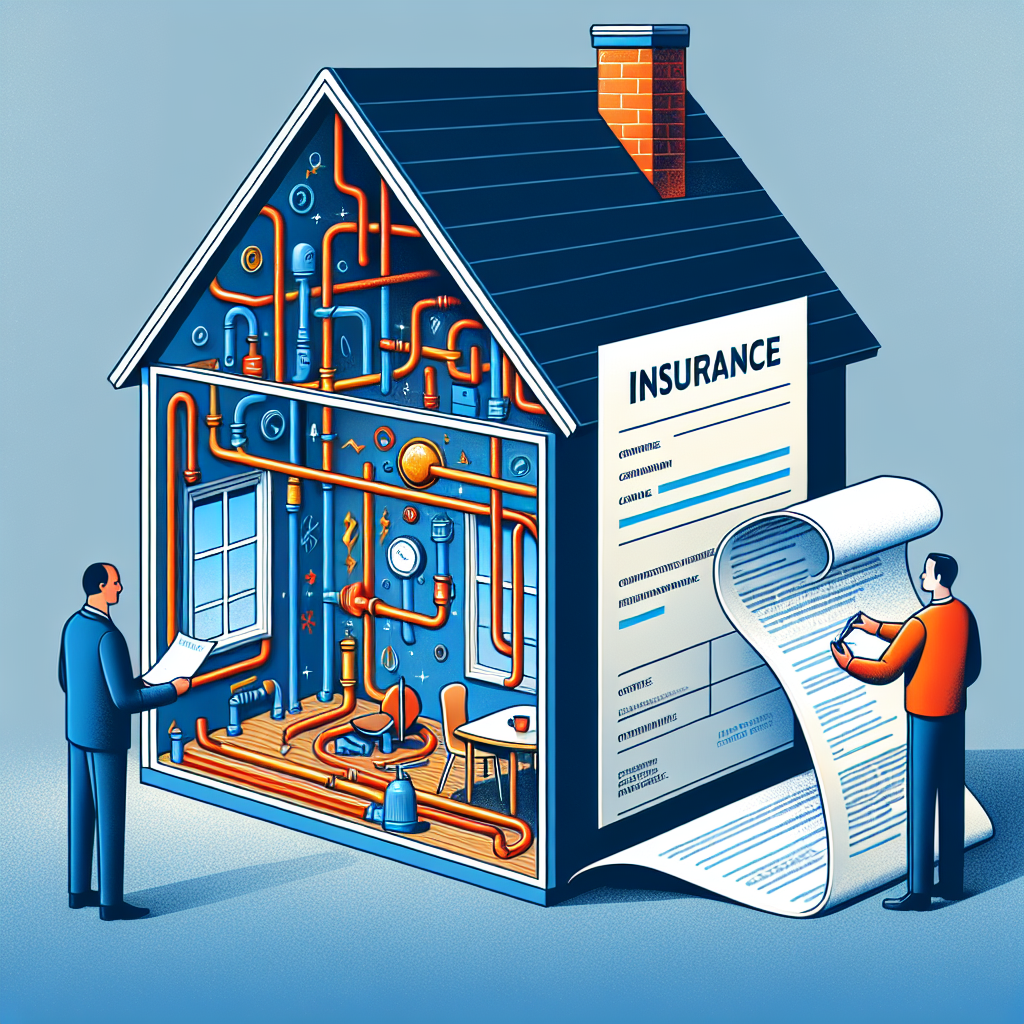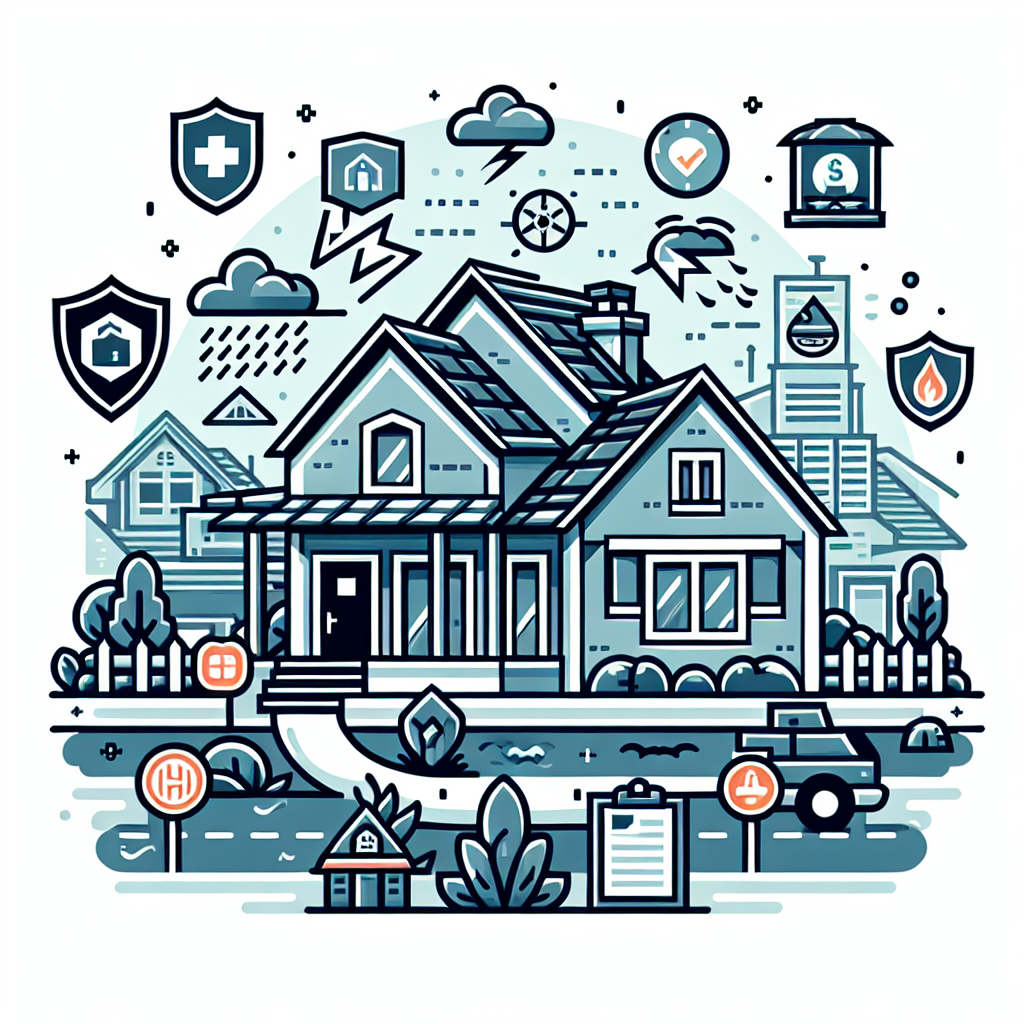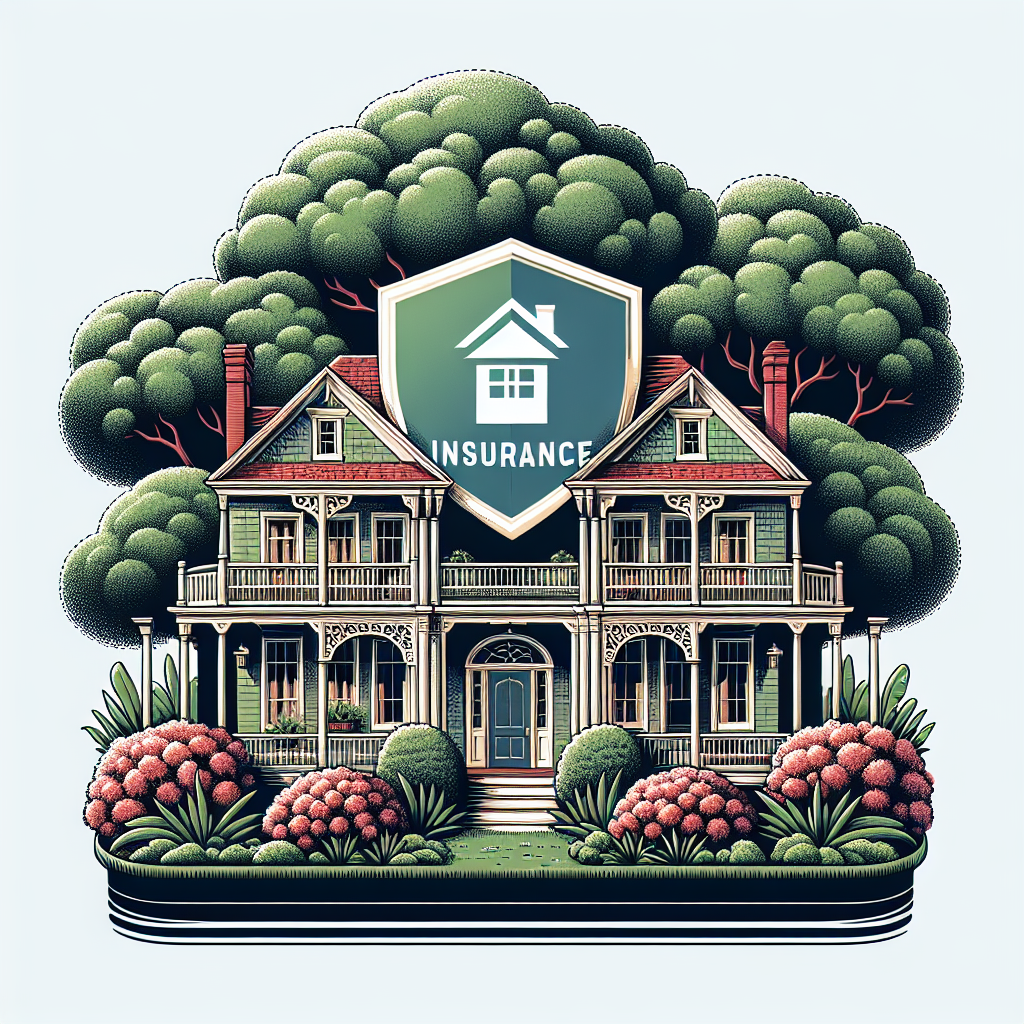Filed under Home Insurance on
Are Gas Lines Included in Your Home Insurance Policy?

Home insurance is a critical part of financial planning for homeowners, offering protection against unexpected disasters and unforeseen damage. It covers a range of risks, from fire and theft to weather-related incidents. However, when it comes to specific components of your home, such as gas lines, it's essential to understand exactly what your policy covers. An often-asked question by homeowners is whether gas lines are included in their home insurance policies. This article delves into this topic, exploring the details of home insurance policies, factors that influence coverage, and what homeowners should consider for comprehensive protection.
Understanding the Basics of Home Insurance
Home insurance, at its core, is designed to cover damages and losses to your residence, including furnishings and certain personal possessions. It generally provides liability coverage against accidents within your home or on your property. While policies vary, a typical home insurance policy covers events such as fires, hail, theft, and certain types of water damage.
However, not every component of your home may be explicitly covered. Among the less understood areas of coverage are utility lines, including gas lines. Homeowners are often surprised to learn the specific terms that apply to these essential infrastructure elements.
What Are Gas Lines and Why Are They Important?
Gas lines provide a vital source of energy for heating, cooking, and other home utilities. Ensuring these lines are safe and functional is crucial for avoiding dangerous leaks and ensuring the continued operation of your home's gas-driven appliances. Given their importance, understanding whether gas lines are included in your home insurance policy is essential for comprehensive home protection.
Gas Line Coverage in Standard Home Insurance Policies
Most traditional home insurance policies provide coverage for your home’s structural components and personal belongings. However, the inclusion of external systems such as gas lines can vary significantly. Generally, gas lines that are within the walls of your home or beneath your property’s surface may not automatically be covered under a standard policy. This exclusion is mainly because such lines fall into a grey area, often seen as equipment or infrastructure outside typical structural elements.
Additional Coverage Options
Due to the limitations of standard policies regarding gas lines, some insurance companies offer additional endorsements or riders that specifically cover utility lines. Also known as service line coverage, these endorsements can be critical for homeowners wanting to avoid significant out-of-pocket expenses. This type of policy extension usually covers repair costs for gas lines, along with lines for water, sewer, electrical, and other utilities if damaged.
Factors Influencing Coverage
Understanding why gas lines might not be included in your home insurance policy requires examining several influencing factors:
- Location: Depending on your geographic location, the risk level associated with gas line damage may vary. Some areas prone to earthquakes, for example, may influence how providers manage coverage and liability for underground systems.
- Age of Home: Older homes might have older gas line infrastructures, increasing the risk of failure or damage.
- Insurance Provider Policies: Different providers have diverse terms and conditions when it comes to what a standard policy covers versus additional coverages offered.
- State Regulations: Local regulatory requirements can influence the stipulations around what insurance policies must cover in terms of residential infrastructure like gas lines.
Steps to Determine Your Coverage
To ascertain if gas lines are included in your home insurance policy, consider the following steps:
- Review your current home insurance policy, focusing on any mention of service lines.
- Contact your insurance provider for clarification on gas line coverage if there is any uncertainty.
- Consider scheduling a consultation to explore the possibility of adding a service line endorsement to your policy.
Expert Opinions on Gas Line Coverage
Industry experts emphasize the importance of comprehensive coverage that extends beyond standard home insurance policies. They highlight the risks homeowners might face without protection against unexpected gas line issues. “Modern home insurance needs to address infrastructure components as integral parts of residential protection,” says Jane Doe, a home insurance specialist. “Not having gas lines included can lead to significant financial setbacks,” she warns.
Current Industry Trends
There is an increasing trend among insurance companies to offer more flexible and inclusive policies. Many providers have created more specific endorsements focusing on utility lines, recognizing a growing consumer demand for comprehensive coverage options that include external home infrastructure. As climate change and technology evolve, redefining what encompasses a fully covered home, insurance policies, too, are adapting to meet these new challenges.
Additional Considerations for Homeowners
Homeowners should consider several additional aspects related to their gas line coverage and overall home policy:
- Regular Maintenance: Perform regular checks and maintenance on your gas lines to prevent potential damages or leaks.
- Safety Measures: Install carbon monoxide detectors and learn to recognize the smell of natural gas to prevent and mitigate risks.
- Comprehensive Quotes: When looking for insurance, seek comprehensive quotes that highlight potential additional costs for endorsements or riders covering gas lines.
- Educate Yourself: Stay informed about home insurance terminology and changes within the industry to make well-informed decisions about your coverage needs.
Conclusion
The inclusion of gas lines in your home insurance policy is not automatic and requires homeowners to explore their policy specifics and available options proactively. Given the financial risks associated with gas line damages, considering an endorsement or rider for service lines can provide invaluable peace of mind and potentially save significant repair expenses. By understanding the details of your home insurance policy, reviewing options with your provider, and taking preemptive safety measures, you can ensure comprehensive protection for your home and its essential utility lines.





